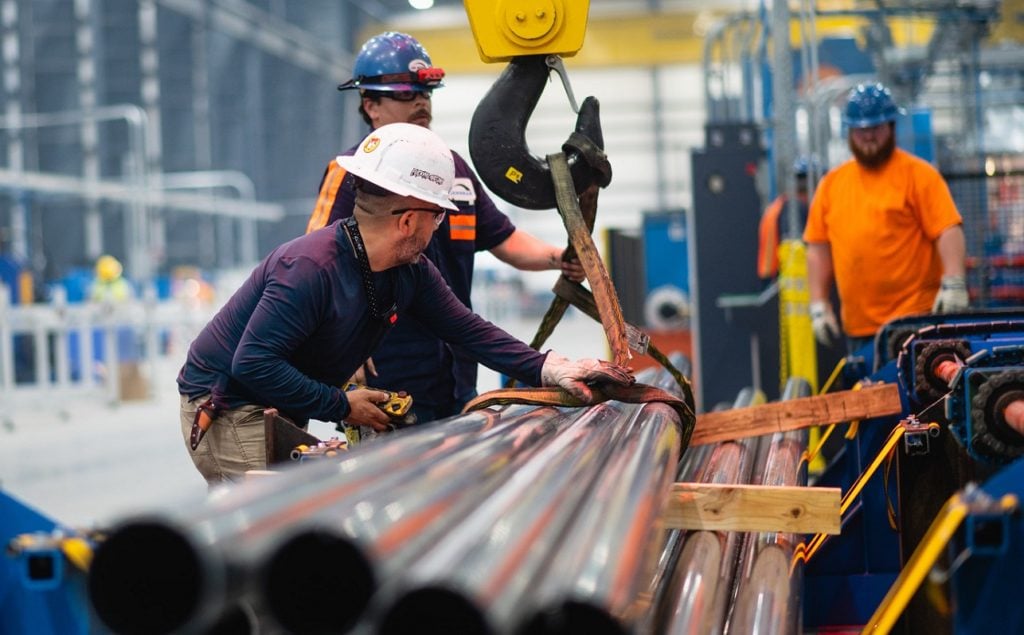
US metal post-frame materials manufacturer Fabral will enter the solar sector with a new venture to produce steel solar racking for the commercial, residential and agricultural markets.
Fabral will join a number of other US steel manufacturers supplying racking and tubing to the US solar PV industry just weeks after president Donald Trump announced a 25% tariff on all steel and aluminium imports to the US.
Try Premium for just $1
- Full premium access for the first month at only $1
- Converts to an annual rate after 30 days unless cancelled
- Cancel anytime during the trial period
Premium Benefits
- Expert industry analysis and interviews
- Digital access to PV Tech Power journal
- Exclusive event discounts
Or get the full Premium subscription right away
Or continue reading this article for free
Fabral Solar, the company’s new division, will be a “one-stop shop for all solar racking needs”, Fabral CEO John Cummings claimed. In a nod towards its new business venture, the company said it would install solar modules at its existing buildings and properties.
“After 50+ years of providing solutions to the metal construction industry, Fabral is extending its reach into the solar energy industry in a significant way,” Cummings said. “Our team will leverage the Fabral knowledgebase in construction, to assist with the steel fabrication and roll-formed products utilised to support solar modules.”
The US solar industry has already made significant supply inroads for domestic steel products for racking and trackers. Racking producer TerraSmart recently announced a partnership with cadmium telluride (CdTe) module producer First Solar to pair its US steel racking with the latter’s modules, and leading US tracker producer Nextracker has signed a number of deals with domestic steel producers to supply materials for its products.
Donald Trump’s steel tariffs are likely to have minimal impact on the domestic US solar industry. PV Tech heard from steel module frame producer Origami Solar, which recently began production at its plant in Arkansas, that the domestic US steel industry is healthy enough to supply solar industry demand for racking and tracking products.
As the company’s COO Mike Gray told us, the tariff on aluminium products may impact the industry more as the majority of solar module producers import aluminium frames from Southeast Asia.
Moreover, there is some uncertainty over the future of the domestic content bonus credit for solar installations under the Biden administration’s Inflation Reduction Act (IRA). Steel plays an important role in qualification for the 10% bonus tax credit for using US-made products, which requires a solar project to meet a 40% minimum cost-based threshold.
Energy analyst Clean Energy Associates published a report earlier this month outlining potential changes to the domestic content bonus under the new presidential administration.






